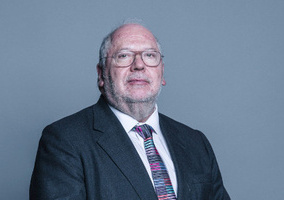Public trust in charities is at its highest level since 2014, according to research published today by the Charity Commission.
Charities now score 6.5 out of 10 for trust, up from 6.3 in 2023, from a low of 5.5 in 2018 following a series of scandals.
Moreover, 58% of people have “high” trust in charities (seven out of 10 or higher), placing it among the most trusted groups in society, second only after doctors.
It finds that information about how money is spent by a charity is the most important factor for most people.
This is followed by knowing that the charity achieves its purpose, that it makes a difference and that it operates to high ethical standards.
Trust in charities differs between different demographics and experiences, with men being more likely to have low trust in charities (10% vs. 7% of women).
Those that have recently seen or heard charities in the news are more likely to have high trust in charities (64% vs. 54% that have not.)
Nonetheless, the report reads: “Media coverage is particularly influential in leading to distrust in charities, but generally the public are cautious to not let the actions of one charity influence how they feel about others.
“However, for any charities where the media uncovers wrongdoing, there is little they can do to redeem their reputation; once sullied the trust is lost.”
Charitable support
A declining percentage of people donating to charities, with 47% of people say they donated money or goods, or raised funds for charity, compared with 62% in 2020.
By contrast, there has been an increase in people saying they have received charitable services, such as financial help, food or medical support from a charity – 9%, up from 3% in 2020.
Around half of people say they have heard of the Commission, with 19% knowing it ‘well’’, and those who have heard of the regulator being more likely to report high trust (63% vs. 52%).
David Holdsworth, chief executive of the Commission, said: “These findings are encouraging, demonstrating that charities collectively are once again firmly trusted by the public, making a visible, essential difference locally, nationally and globally.
“But there is no room for complacency, for charities or for us as regulator. The new findings point to the challenging financial environment charities are operating in, with a decline in the number of people giving to charity, whilst the high cost of living appears to be driving more people to access charity services.
“In these financially challenging times, charities must continue to show people how they deliver on their purpose, including how every penny makes a positive difference.
“Anyone can look up this information on our public register of charities, which gives details of each charity’s purpose and spending.”
Research into trustee attitudes
Alongside the research into public trust, the regulator has published the findings of a survey into charity trustees’ attitudes towards their role.
The research finds that most trustees share the public’s expectations of conduct in charities – 61% agree that because of its registered status, their charity’s standards of behaviours and conduct ought to be higher than that in other organisations.
It finds that trustees are less clear on things they should not be doing, including making decisions based on their personal views, or avoiding awkward questions.
They are also less confident about dealing with conflicts of interest, and overseeing charity finances.
For the first time, the Commission asked charity trustees about their charity’s use of artificial intelligence. Only 3% of trustees said their charity has used AI, however this rose to 8% of larger charities (income £1m+).
Related Articles












